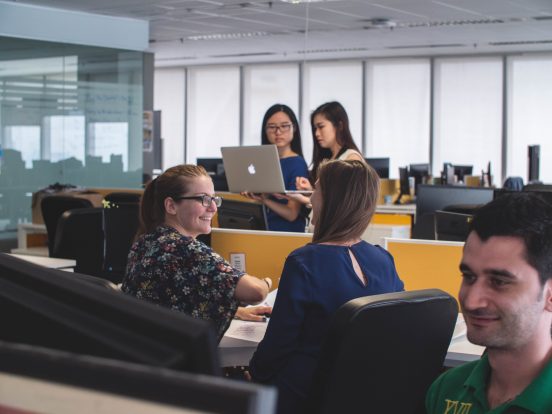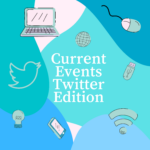Multi-Access for Learning
Today, we went on a mini field trip to the basement of the Clearihue building’s video conferencing room in B021. For the first half of the class (about 1 1/2 hours), we listened to a presentation by Dr Irvine on the concept of providing multi-access and modality in learning experiences. Most of the class was sitting in one room, while a few other students were in a room down the hall. The rooms were connected via video conferencing, so that we were able to simultaneously follow along with the PowerPoint presentation while also interacting with the group next door.
To start her presentation, Dr Irvine posed several questions to discuss with others regarding modality. We had the option to respond through Twitter on the #edci336 hashtag, but for the sake of time, our group reviewed each prompt orally. Some example questions:
- Why do we need to have a required face-to-face experience as a class?
- Does/should modality bias exist?
- Should we allow flexibility in modality accessibility (multi-access)? What are the implications?
Should an instructor's preference override student accessibility? Or student preference of modality?
Students should always come first, but teachers must be educated and have access to the resources that assist accessibility #edci336 @KayleighDawn19 @_valeriei— 𝕁𝕖𝕤𝕤𝕚𝕔𝕒 (@jessicahteach) November 18, 2019
From my understanding, flexibility in pedagogy is key. Often, a focus or emphasis on strictly face-to-face instruction can exclude learners who are unable to physically attend class due to mobility, health or transportation issues. Having the option for students to video-conference into the classroom, or periodically conducting virtual class sessions is not only beneficial for those learners unable to physically attend class, but also the rest of the students as they are exposed to multi-modal ways of teaching through informational technology.
Dr Irvine also mentioned how the name ‘blended’ is an outdated term for describing multi-access learning as it doesn’t really encompass the range of access available.
Tech Inquiry Presentations
In the second half of the session, we listened to tech presentations. Some of the inquiries explored by our class included:
- GAFE (Google Applications For Education)
- Using technology to aid literacy development
- Technology assisted learning
- This includes computer assisted instruction, speech to text software (eg. Google Voice typing, Chrome speech notes, Apple dictation, Windows Speech Recognition, Dragon Professional individual, Braina), text to speech (eg. Google Read and Write) and smartboards
An interesting and valuable resource for making digital presentations was also shared by one the groups presenting. Slides Carnival is a website which provides free presentation templates. These can be added to your Powerpoint, Google Slides or Canva document. They are easy and ready to use with clear themes and graphics.





